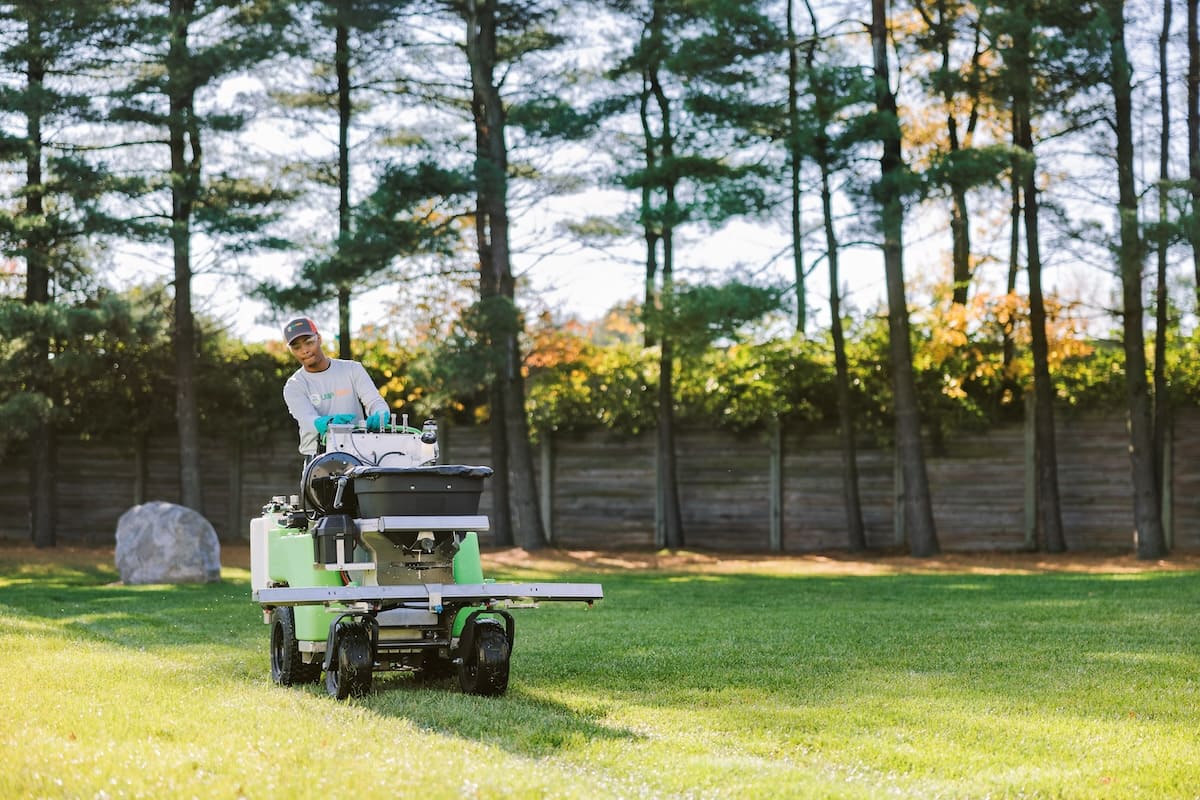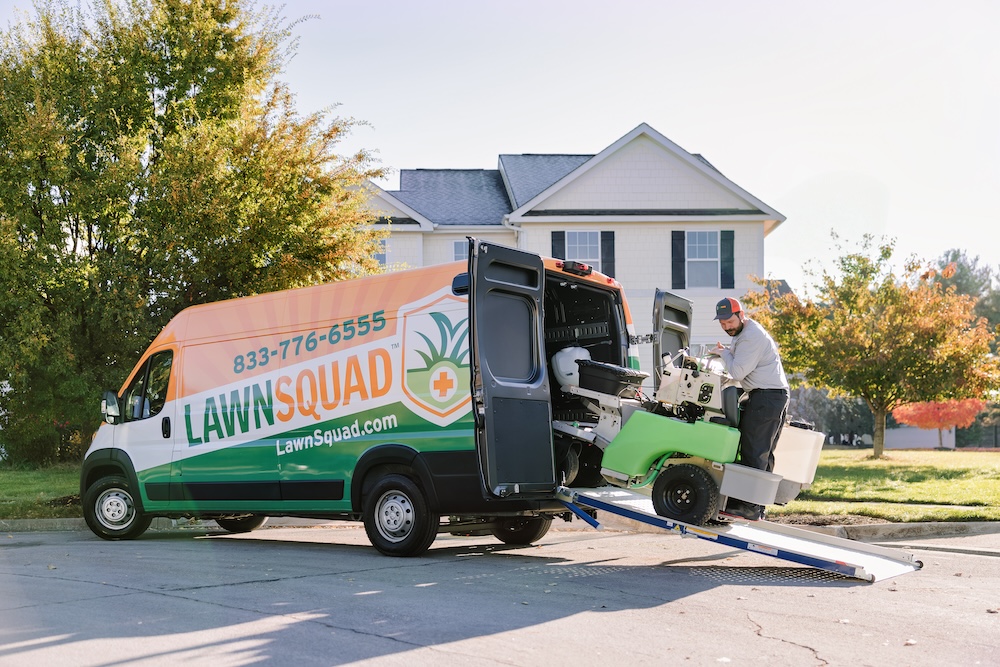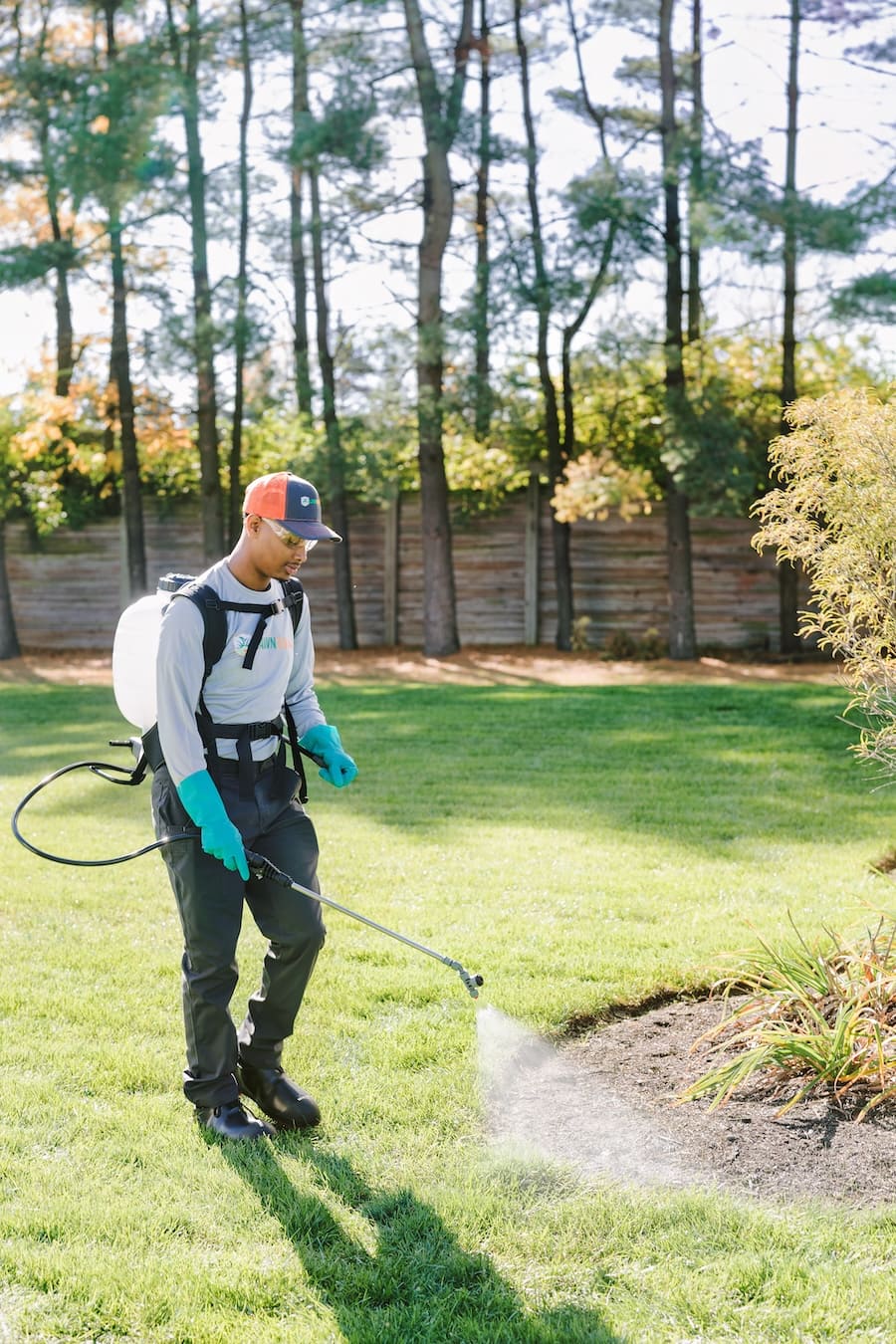Your Lawn Care Experts
Local Lawn Care Services to Keep Your Yard Looking Beautiful All Season Long

ensuring you have a lush, green lawn
Your free time should be spent doing things you love—not on maintaining your lawn. That’s where Lawn SquadTM’s VitaminLawn program is here to help. Custom tailored to your lawn, our VitaminLawn program includes lawn fertilizer, weed control and other services to help bring you the greenest, healthiest, and most beautiful lawn possible.
Our Lawn Care Services

Help Keep Your Lawn in Top Shape with Our Local Experts
The pros at Lawn Squad are proud to be your friendly neighborhood lawn care experts! With locally-owned branches in your neighborhood, we have the right knowledge and experience to help keep your yard in top shape. Our dedicated team of lawn care professionals is well-versed in the local scene – we've got the scoop on the weather, soil makeup, those pesky weeds that pop up, and the insect critters that might be bugging you. Thanks to our local roots, we're equipped with the know-how to design a tailored lawn care plan that's a perfect fit for your lawn.
Less Weeds, More Time to Enjoy Life

At Lawn Squad, we take our name seriously when it comes to battling those pesky weeds. Our approach to weed control is top-notch and tailored just for you. We've got a secret sauce – our very own blend of products – to tackle various weeds at the right times of the year. When spring rolls around, we cover your entire lawn, and from there, we'll target specific spots as needed. While your weeds won't magically vanish overnight, you'll definitely notice a positive shift as the season unfolds.
Now, some of those stubborn weeds might put up more of a fight, and that's okay. We get it. Sometimes they might not even show up when we're treating. That's why we're here with a solution.
A Part Of The Authority Brands Family
Ready for Your FREE Quote?
Lawn Squad recognizes that creating a beautiful lawn and having the freedom to pursue your passions are achievable goals. Our mission is to offer you both. Are you ready to start the path to a lawn you'll cherish? Request a free quote today!

















